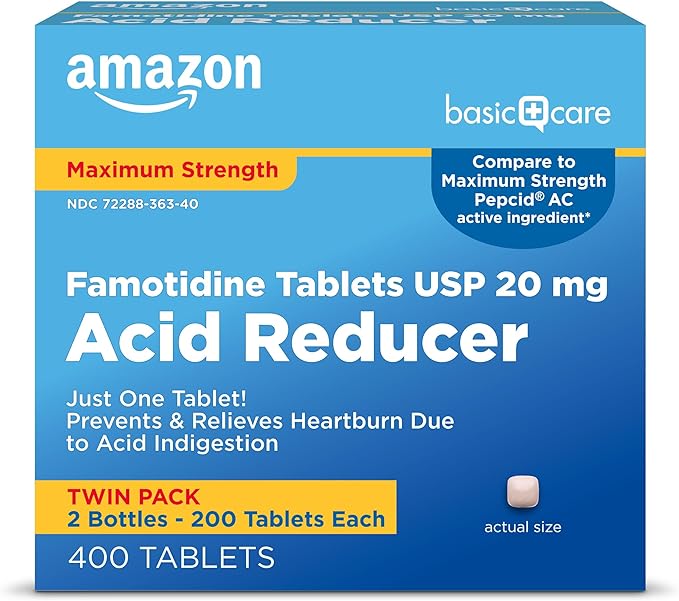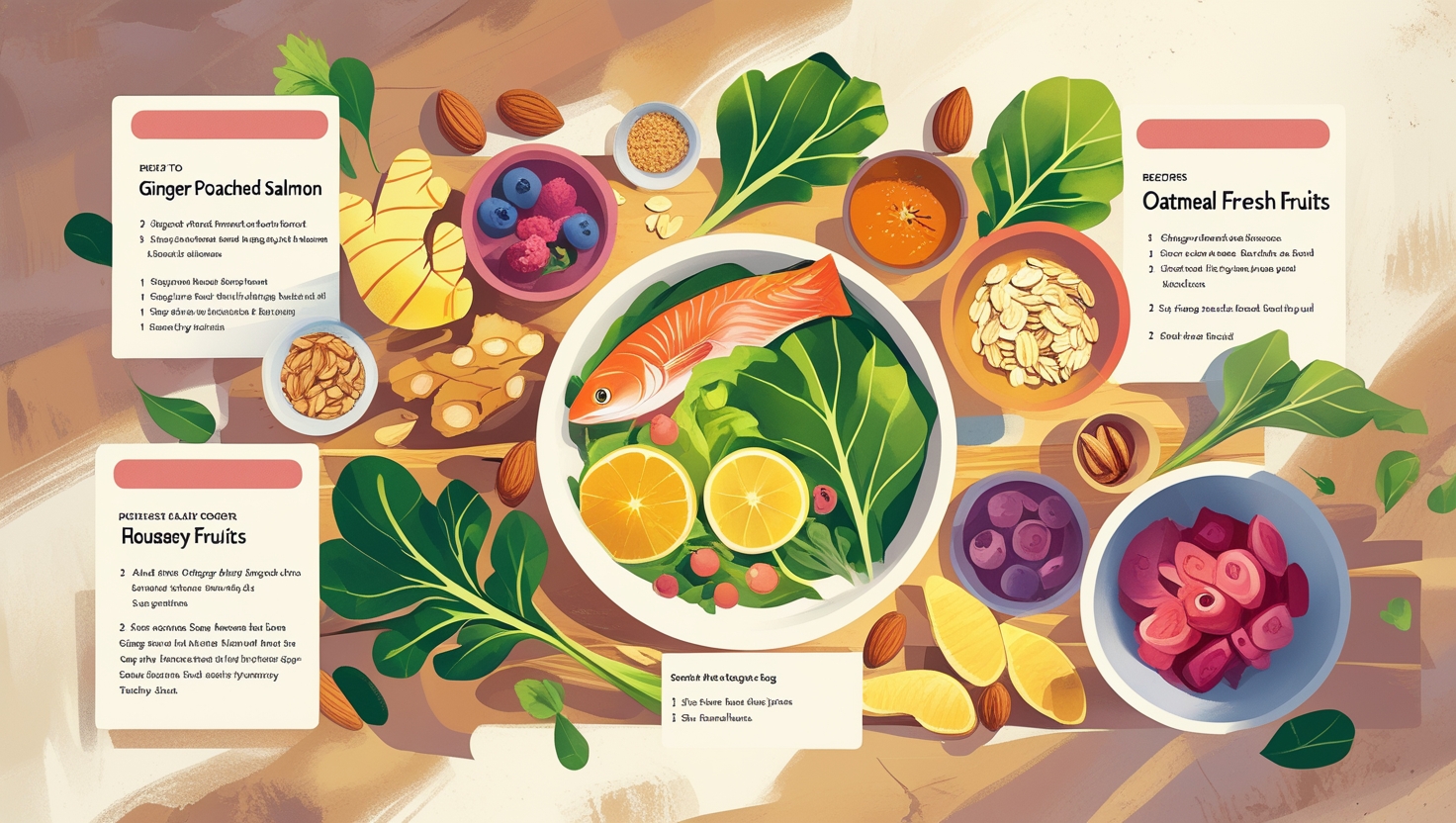Natural Acid Reflux Treatment: 15+ Proven Home Remedies & Lifestyle Changes That Work

Tired of relying on antacids? Explore powerful natural acid reflux treatment methods that address the root causes of GERD. From simple dietary tweaks to ancient herbal remedies, discover how to reclaim your digestive health naturally.
The Silent Epidemic: Why Natural Solutions Matter More Than Ever
Heartburn's got you down? You're definitely not alone in this struggle. Millions of folks worldwide are battling gastroesophageal reflux disease (GERD) daily, and frankly, it's becoming quite the health crisis. While conventional medications offer quick fixes, they often come with unwanted side effects and don't address the underlying issues causing your discomfort.
Here's the thing – your body has incredible healing capabilities when given the right tools and environment. Natural acid reflux treatment isn't just some hippie trend; it's a scientifically-backed approach that works with your body's natural processes rather than against them. By understanding what triggers your symptoms and implementing targeted lifestyle changes, you can often achieve lasting relief without becoming dependent on medications.

Understanding the Root Causes: It's More Complex Than You Think
Before diving into solutions, let's get real about what's actually happening in your digestive system. Acid reflux occurs when stomach acid escapes upward into the esophagus, causing that familiar burning sensation we all dread. But here's where it gets interesting – the problem isn't always too much acid. Sometimes, it's actually too little!
Your lower esophageal sphincter (LES) acts like a one-way valve, keeping stomach contents where they belong. When this muscle weakens or relaxes inappropriately, trouble begins. Various factors contribute to LES dysfunction, including certain foods, stress levels, sleep position, and even the clothes you wear. Understanding these triggers is crucial because effective natural acid reflux treatment starts with identifying and eliminating the root causes.
Dietary Modifications: Your First Line of Defense
The Power Foods That Heal
Certain foods act like natural antacids, providing immediate relief while supporting long-term digestive health. Here's your go-to list of reflux-fighting superfoods:
- Oatmeal: This fiber-rich breakfast champion absorbs stomach acid while providing sustained energy
- Ginger: A potent anti-inflammatory that soothes the digestive tract and reduces nausea
- Lean proteins: Chicken, turkey, and fish are easier to digest than fatty meats
- Non-acidic fruits: Bananas, melons, and pears won't trigger symptoms
- Leafy greens: Spinach, kale, and arugula are naturally alkaline and nutrient-dense
- Almonds: These nuts help neutralize stomach acid when eaten in moderation
Research from the American Journal of Gastroenterology shows that dietary modifications can be as effective as medications for many people with mild to moderate GERD. The key is consistency – sporadic changes won't cut it. You need to commit to these modifications for at least 4-6 weeks to see significant improvements.
Foods to Avoid Like the Plague
Now, let's talk about the troublemakers. These foods are notorious acid reflux triggers that can undo all your hard work:
- Citrus fruits and juices: Oranges, lemons, and grapefruits are highly acidic
- Tomato-based products: Pizza sauce, ketchup, and marinara can spell disaster
- Spicy foods: While delicious, they irritate the esophageal lining
- Chocolate: Contains caffeine and other compounds that relax the LES
- Mint: Surprisingly, peppermint can actually worsen reflux symptoms
- Carbonated beverages: The bubbles increase stomach pressure
- Alcohol: Relaxes the LES and increases acid production
- High-fat foods: Slow digestion and promote reflux
Herbal Remedies: Nature's Pharmacy at Your Fingertips
Chamomile Tea: The Gentle Giant
Chamomile isn't just for bedtime anymore! This humble flower contains powerful anti-inflammatory compounds that can significantly reduce acid reflux symptoms. Studies published in the Journal of Advanced Nursing demonstrate chamomile's effectiveness in treating various digestive disorders, including GERD.
Brew a cup using 1-2 teaspoons of dried chamomile flowers in hot water for 5-10 minutes. Drink this soothing elixir 30 minutes before meals or whenever symptoms arise. The best part? Unlike many medications, chamomile actually becomes more effective with regular use, as its healing compounds accumulate in your system.
Slippery Elm: Your Esophagus's Best Friend
This Native American remedy has been soothing irritated digestive tracts for centuries. Slippery elm forms a protective gel-like coating when mixed with water, literally cushioning your esophagus against acid damage. Clinical trials show it can reduce reflux frequency by up to 40% when used consistently.
Mix 1-2 tablespoons of slippery elm powder with water to create a thick paste. Take this mixture 30 minutes before meals and at bedtime. Fair warning – the texture takes some getting used to, but the relief is worth it!
Aloe Vera Juice: Not Just for Sunburns
You probably know aloe vera as a topical remedy for burns, but did you know it's equally effective internally? Pure aloe vera juice (not the gel!) can heal esophageal inflammation and reduce acid production. Research from the Journal of Traditional and Complementary Medicine shows significant symptom improvement in GERD patients using aloe vera.
Start with 1/4 cup of pure, organic aloe vera juice twice daily on an empty stomach. Gradually increase to 1/2 cup if well-tolerated. Make sure you're buying inner leaf aloe vera juice specifically designed for internal consumption – the wrong type can actually worsen symptoms.
Lifestyle Modifications: Small Changes, Big Results
Sleep Position: Gravity Is Your Friend
Here's a simple yet incredibly effective natural acid reflux treatment: elevate your head while sleeping. When you lie flat, stomach acid can easily flow into your esophagus. By raising your upper body 6-8 inches, you're literally using gravity to keep acid where it belongs.
Don't just pile up pillows – this creates an uncomfortable angle that can actually worsen symptoms. Instead, place blocks or wedges under the head of your mattress to create a gentle incline. Many people report dramatic improvement within just a few nights of making this adjustment.
Timing Is Everything: When and How to Eat
The timing of your meals plays a crucial role in managing acid reflux naturally. Your stomach needs time to empty before you lie down, so aim to finish eating at least 3-4 hours before bedtime. This isn't always practical with busy schedules, but even 2 hours can make a significant difference.
Consider adopting the “grazing” approach – eating smaller, more frequent meals throughout the day rather than three large ones. This prevents your stomach from becoming overly full, which increases pressure on the LES. Plus, it keeps your blood sugar stable and energy levels consistent. Win-win!
Stress Management: The Often-Overlooked Connection
The Mind-Gut Connection Is Real
Chronic stress doesn't just affect your mental health – it wreaks havoc on your digestive system too. When you're stressed, your body produces more stomach acid while simultaneously slowing digestion. This creates the perfect storm for acid reflux symptoms.
Research from Harvard Medical School confirms that stress reduction techniques can significantly improve GERD symptoms. The vagus nerve, which controls digestion, responds directly to your emotional state. By managing stress effectively, you're literally rewiring your digestive response.
Practical Stress-Busting Techniques
- Deep breathing exercises: 4-7-8 breathing pattern activates the parasympathetic nervous system
- Progressive muscle relaxation: Systematically tense and release muscle groups
- Meditation: Even 10 minutes daily can reduce cortisol levels significantly
- Regular exercise: Moderate activity improves both stress levels and digestion
- Adequate sleep: 7-9 hours nightly supports proper hormone regulation
Natural Supplements: Targeted Support for Digestive Health
Digestive Enzymes: Breaking Down the Problem
Sometimes acid reflux stems from poor digestion rather than excess acid. Digestive enzyme supplements can help break down food more efficiently, reducing the likelihood of reflux. Look for broad-spectrum enzymes containing protease, lipase, and amylase.
Take enzymes with the first bite of each meal, not before or after. Start with a lower dose to assess tolerance, as some people experience temporary digestive changes when beginning supplementation. Clinical studies show that enzyme therapy can reduce reflux symptoms by 60-70% in enzyme-deficient individuals.
Probiotics: Restoring Digestive Balance
Your gut microbiome plays a massive role in digestive health, including acid reflux management. Imbalanced gut bacteria can contribute to inflammation, poor digestion, and LES dysfunction. High-quality probiotic supplements help restore beneficial bacteria while crowding out harmful organisms.
Look for multi-strain probiotics with at least 10 billion CFUs (colony-forming units) per serving. Lactobacillus and Bifidobacterium species are particularly beneficial for acid reflux sufferers. Take probiotics on an empty stomach for best absorption, preferably first thing in the morning.
Quick Relief Strategies: Natural SOS Methods
Apple Cider Vinegar: Controversial but Effective
This remedy seems counterintuitive – adding acid to treat acid reflux? But here's the science: many people with GERD actually have low stomach acid (hypochlorhydria), not high acid. ACV can help restore proper acid levels and improve digestion.
Mix 1-2 tablespoons of raw, unfiltered apple cider vinegar in 8 ounces of water. Drink this mixture 15-30 minutes before meals. Start with less and gradually increase if well-tolerated. If symptoms worsen, discontinue use immediately – this remedy isn't suitable for everyone.
Baking Soda: The Emergency Solution
When you need quick relief, baking soda can neutralize stomach acid almost instantly. However, this should be used sparingly as a short-term solution, not a daily remedy. Excessive use can disrupt your body's natural pH balance and cause rebound acid production.
Mix 1/2 teaspoon of baking soda in 4 ounces of water. Drink quickly and don't use more than three times daily or for longer than two weeks without medical supervision.
Advanced Natural Strategies: Going Deeper
Intermittent Fasting: Giving Your Digestive System a Break
Intermittent fasting (IF) has gained popularity for weight loss, but it's also incredibly beneficial for digestive health. By giving your digestive system regular breaks, IF allows inflammation to subside and the LES to recover from constant stimulation.
The 16:8 method works well for beginners – eat within an 8-hour window and fast for 16 hours. Many people find their acid reflux symptoms dramatically improve after just 2-3 weeks of consistent IF. However, this approach isn't suitable for everyone, particularly those with certain medical conditions or eating disorders.
Acupuncture: Ancient Wisdom Meets Modern Science
Traditional Chinese Medicine has been treating digestive disorders for thousands of years, and modern research is finally catching up. Multiple studies show that acupuncture can significantly reduce acid reflux symptoms by regulating stomach acid production and improving LES function.
Look for licensed acupuncturists with specific experience treating digestive disorders. Treatment typically involves weekly sessions for 6-8 weeks, with maintenance sessions as needed. Many insurance plans now cover acupuncture for digestive conditions.
Creating Your Personal Natural Acid Reflux Treatment Plan
Step-by-Step Implementation Guide
- Week 1-2: Eliminate trigger foods and implement basic dietary changes
- Week 3-4: Add herbal remedies and adjust sleep position
- Week 5-6: Incorporate stress management techniques and exercise routine
- Week 7-8: Consider supplements and advanced strategies if needed
- Ongoing: Monitor symptoms and adjust plan as necessary
Tracking Your Progress
Keep a detailed food and symptom diary for at least 4 weeks. Note what you eat, when you eat it, stress levels, sleep quality, and symptom severity. This data is invaluable for identifying patterns and refining your natural treatment approach.
Use a simple 1-10 scale for rating symptoms, with 1 being no symptoms and 10 being severe. Track frequency of episodes, their duration, and what seems to help or hinder relief. Apps like MyFitnessPal or simple notebook entries work equally well.
Frequently Asked Questions About Natural Acid Reflux Treatment
Q: How long does it take to see results from natural remedies? Most people notice some improvement within 1-2 weeks of consistent implementation. However, significant, lasting results typically take 4-8 weeks as your digestive system heals and adapts to the changes.
Q: Can natural treatments completely replace medications? For many people with mild to moderate GERD, natural approaches can be highly effective. However, severe cases may require medical intervention. Always consult with healthcare providers before discontinuing prescribed medications.
Q: Are there any risks to natural acid reflux treatment? Generally, natural approaches are much safer than long-term medication use. However, some herbs can interact with medications, and certain remedies may not be appropriate for pregnant women or people with specific health conditions.
Q: What if my symptoms worsen during natural treatment? If symptoms significantly worsen or you develop new concerning symptoms (difficulty swallowing, persistent pain, unintentional weight loss), seek medical attention immediately. These could indicate complications requiring professional treatment.
Q: How do I know if I have low or high stomach acid? Professional testing is the most accurate method, but you can try the baking soda test at home. Drink 1/4 teaspoon of baking soda in 4 ounces of water on an empty stomach. If you don't burp within 5 minutes, you may have low stomach acid.
Final Thoughts: Your Journey to Natural Digestive Wellness
Conquering acid reflux naturally isn't just about symptom management – it's about creating lasting digestive health and overall wellness. The strategies outlined in this comprehensive guide offer hope for those tired of depending on medications or dealing with persistent symptoms.
Remember, consistency is key. Natural healing takes time, but the results are often more sustainable than quick pharmaceutical fixes. Your body wants to heal; you just need to provide the right environment and support for that healing to occur.
By implementing these evidence-based natural acid reflux treatment approaches, you're not just addressing symptoms – you're investing in your long-term health and quality of life. Start with the basics, be patient with the process, and don't hesitate to seek professional guidance when needed. Your digestive system will thank you for taking this natural, holistic approach to healing.







